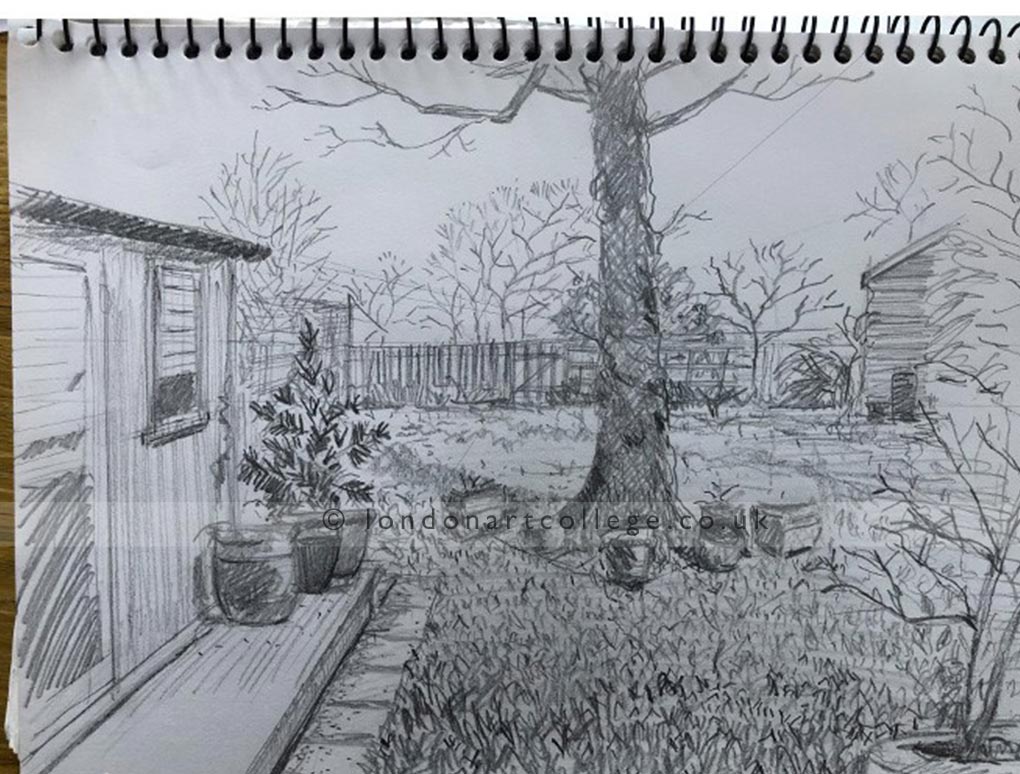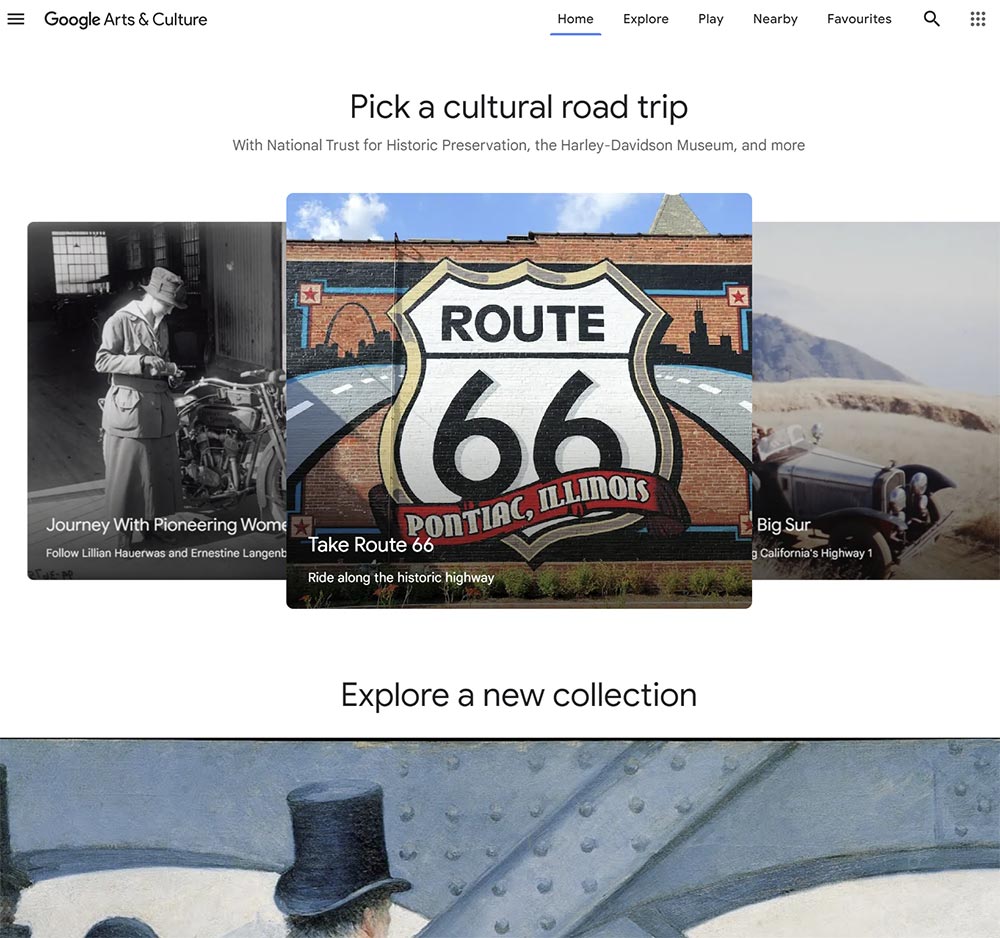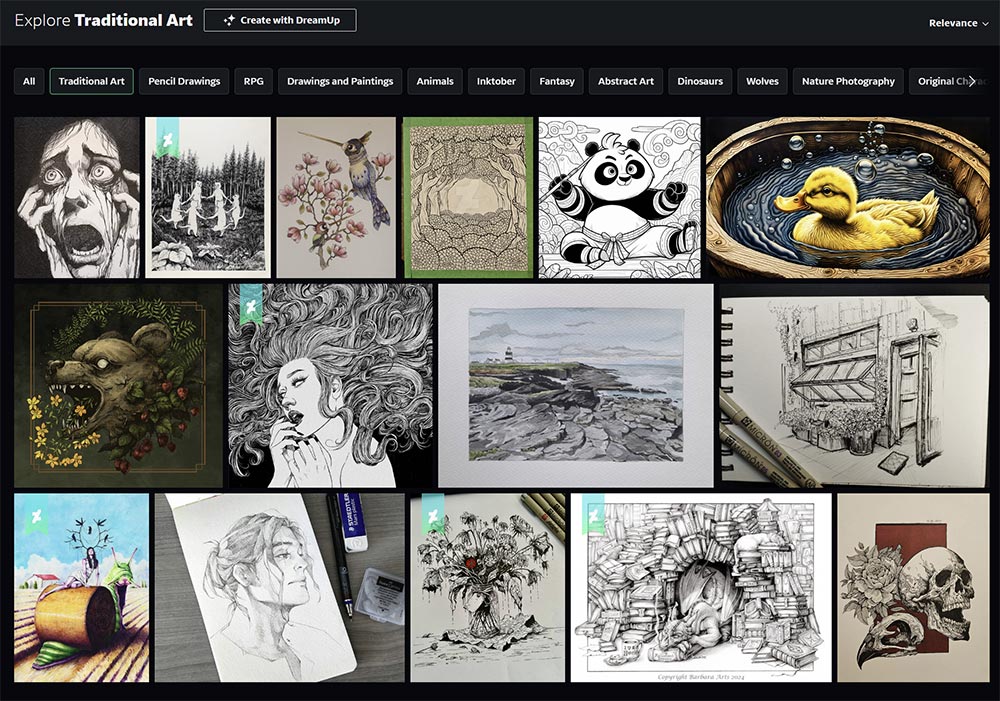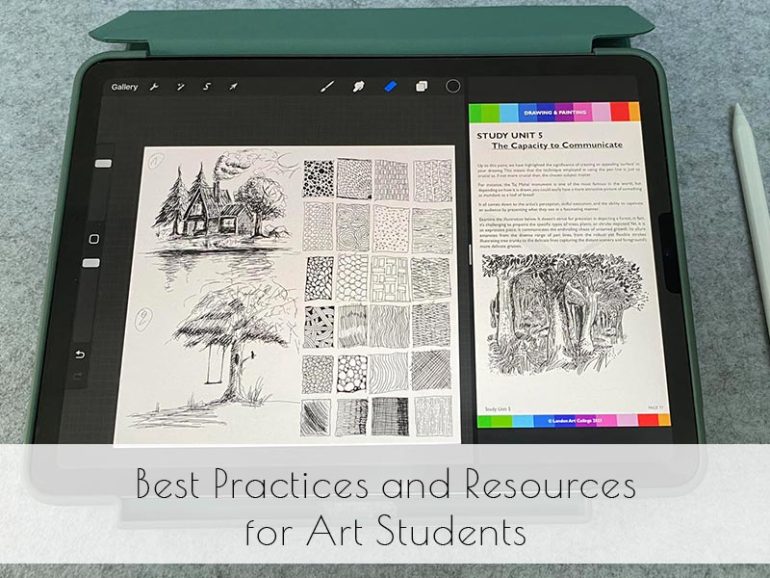Effective art education is crucial for developing both technical skills and creative expression. At the London Art College, we are dedicated to providing high-quality online art courses that cater to diverse artistic interests and skill levels. We thought it might be good to discuss best practices for art students, recommend valuable books and online resources, and highlight the importance of critiquing and receiving feedback.
Effective Study Techniques for Art Students
To excel in your artistic journey, it is essential to adopt effective study techniques that foster growth and creativity:
- Regular Practice and Maintaining a Sketchbook: Consistency is key in art. Regular practice helps refine your skills and develop your unique style. Keeping a sketchbook allows you to document ideas, experiment with techniques, and track your progress over time.

- Setting Specific Goals and Deadlines: Having clear goals and deadlines for your projects can boost productivity and provide a sense of direction. Break down larger projects into manageable tasks and set realistic timelines to keep yourself motivated and on track.
- Utilizing Online Tutorials and Video Lessons: The internet is a treasure trove of instructional content. Platforms like YouTube offer countless tutorials on various techniques and styles. Follow along with these lessons to learn new skills and apply them to your work.
- Balancing Technical Skill Development with Creative Exploration: While honing your technical abilities is important, don’t forget to explore your creative side. Experiment with different mediums, styles, and subjects to discover what resonates with you and to keep your practice engaging and enjoyable.
Recommended Books, Courses, and Online Resources
Access to quality resources can significantly enhance your art education. Here are some recommended books and free online resources that can aid your learning:
- Books and Resources:
- “Drawing on the Right Side of the Brain” by Betty Edwards: This classic book offers innovative exercises to help you develop your drawing skills and see the world in a new way.
- “Art & Fear: Observations on the Perils (and Rewards) of Artmaking” by David Bayles and Ted Orland: This insightful book addresses the challenges artists face and provides encouragement to overcome them.
- Google Arts & Culture: Explore artworks from museums around the world, gain insights into different art movements, and participate in interactive activities.

Importance of Critiquing and Receiving Feedback
Constructive criticism is a vital component of artistic growth. Receiving feedback helps you identify areas for improvement, understand different perspectives, and refine your techniques. Constructive criticism pushes you to challenge yourself and strive for excellence. When receiving feedback, be open-minded, listen carefully, and apply the suggestions to enhance your work.
Utilizing Online Art Communities and Forums
Engaging with online art communities such as DeviantArt, ArtStation, and Reddit’s r/ArtCrit can provide valuable feedback from fellow artists. Participating in these forums allows you to share your work, receive constructive criticism, and learn from others.

Here at the London Art College, we offer a number of Facebook groups which allow students to upload their work, ask questions and ask for recommendations on their work and art materials. It is well worth utilising as everyone is very friendly. The groups are closed groups, so a safe and secure environment for our students to learn and grow.
Remember, continuous learning and feedback are essential components of your artistic journey. The London Art College is here to support you every step of the way with our comprehensive online courses and dedicated community.
If you would like to receive a roundup of all of our blog posts once a week to keep you inspired in your inbox, why not sign up to our newsletter. You can access our sign up at the top of our page. If you are a London Art College student and you would like your artwork featured here, drop us a line at any time.


Thanks a lot for your awesome work!
Thrilled you enjoyed this blog post Oksana!